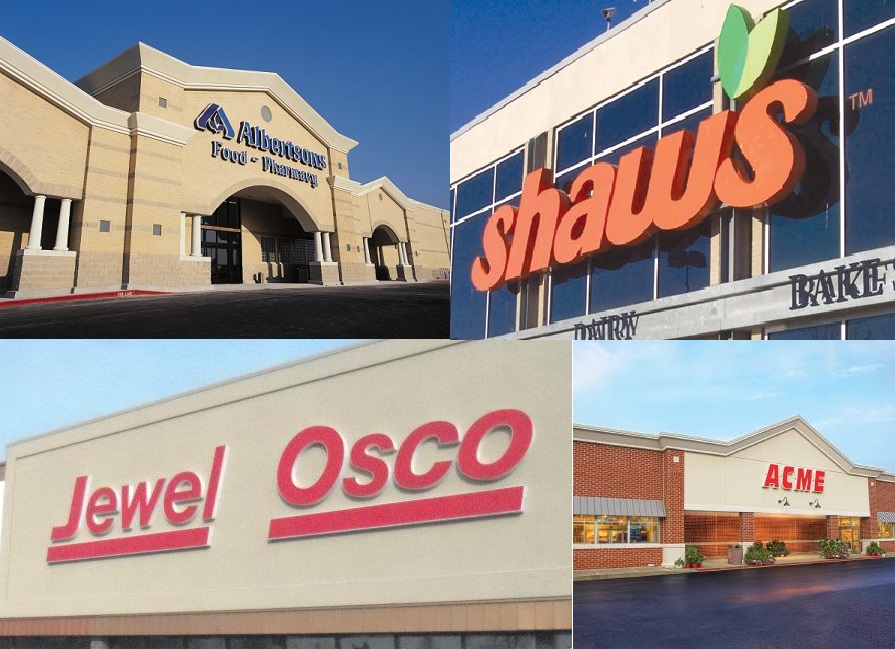
Private equity firm Cerberus Capital Management, the (relatively) new owner of Albertsons, Acme, Jewel-Osco, Shaw’s and Star supermarket chains, recently axed all store loyalty card programs.
It’s a surprising move in an era where seemingly every retailer is getting on the shopping rewards bandwagon, with Walgreens notably taking the plunge within the past year. And somewhat ironic, since Chicago-area supermarket chain Jewel-Osco helped pioneer the loyalty card movement.
It’s also a move that begs a multitude of questions. Not just of the self-serving variety (“Will I still occasionally receive coupons for $10 off my next purchase of $75 or more?”) but also the types of questions we at RE:INVENTION ask when working with clients. Here are four that come to mind:
- Were Albertsons, Acme, Jewel-Osco, Shaw’s and Star mining the individual customer data from their store loyalty cards?
- Did the store teams understand how to use the one-on-one customer data in a meaningful way?
- Does Cerberus Capital undervalue market intelligence and CRM?
- Do other private equity firms understand how market intelligence and CRM can help with company turnarounds? Or, in the words of Solis Capital’s Josh Harmsen, are most private equity firms “merely opportunistic value extractors, rather than enablers of company growth?”
Since we’re on the periphery, we don’t have specific answers. But speaking hypothetically, had Cerberus Capital called us in to advise them, we’d certainly have tried to understand their reservations and communicate the value of compiling, analyzing and utilizing the wealth of consumer data provided by loyalty card rewards programs.
We would have suggested some innovative ideas for extracting value from loyalty card data, including using the data to:
- create profitable private label products
- build meaningful end aisle caps
- notify customers of recalls
- provide recipes featuring private label brands or deli products for cross-selling to increase average basket size
- reward loyalty with perks not just discounts
- optimize space/assortment/replenishment planning
- plan store events
- or even to justify raising slotting or pallet fees with vendors
We’d have recommended actionable data visualizations such as Dashboards with charts and graphs or Price/Attrition Alerts to help sales teams gain meaningful customer insights rather than needing to sort through piles of spreadsheets or hundred-page long reports. I would have shared a case study from my days at Whole Foods Market where my brilliant team used business intelligence and retail analytics vis-a-vis customer and store data gathered by our national gift card and store e-newsletter to improve marketing, merchandising, and customer engagement (sorry Motley Fool, we had a “BIG big brother” database which we custom-built in partnership with Hartman Interactive, Targetbase, Dailyshopper.com, ccgenesis, SPECTRA Logic, and ValueLink).
Then I would have explained that integrating consumer data with purchase behavior data can reveal a comprehensive view of customers and pave a clear path to retail location planning (either expansion or consolidation), guide retail store layout design, and govern profit-generating segmentation strategy. Loyal customers purchase 20-30 times the amount purchased by occasional shoppers.
Analytics can be a powerful corporate differentiator. But big data is only as good as the business decisions it facilitates and the behavior it changes – in the interest of better serving your customers. Ultimately, the better a company knows its customers, the more effectively it can tailor its interactions, increase customer loyalty, deliver value to customers, and boost sales and profitability. We think it’s sad and somewhat baffling that Cerberus Capital seems to be walking away from customer relationship building, choosing instead to only compete on price.
What’s your take? What do you think drove Cerberus Capital’s decision to end loyalty rewards programs across all their newly acquired supermarket stores? Could the rewards programs have been reinvented to become better performers? Do you think pulling the plug will end up being the right decision? Let us know by posting a comment below.

No Comments to “Four Pressing Questions About Cerberus Capital’s Decision To Axe Store Loyalty Rewards Programs.”